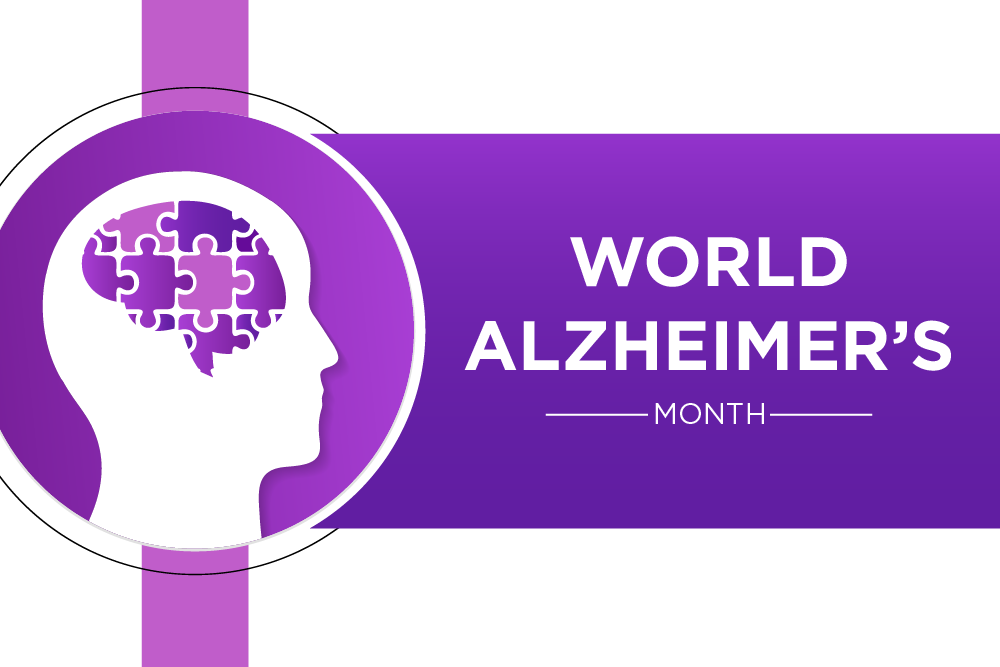In September, the world unites for World Alzheimer’s Month, a critical campaign to challenge the stigma and raise global awareness of Alzheimer’s disease and other dementias. This month is about more than just remembering; it’s about empowering our community with knowledge, compassion, and the resources to navigate this complex health challenge.
Understanding Alzheimer’s
We all have moments of forgetfulness—misplacing car keys or forgetting a name—and that’s a normal part of aging. However, Alzheimer’s is different. It’s a progressive brain disorder that disrupts daily life and goes far beyond simple memory lapses.
According to the Alzheimer’s Association, over 6 million Americans are living with Alzheimer’s. By 2050, this number is projected to rise dramatically to nearly 13 million. Therefore, it is more important than ever to understand the signs and symptoms. These can include:
- Memory loss that interferes with daily life, like forgetting important dates or events.
- Difficulty with tasks that were once familiar, such as following a recipe or managing a budget.
- Challenges with planning or solving problems.
- Confusion about time or place.
- Struggling with words in conversation or writing.
- Withdrawal from social activities.
If you or a loved one are experiencing these changes, it’s worth speaking with a healthcare professional.
Why Early Detection Matters
While there is currently no cure for Alzheimer’s, an early diagnosis can make a huge difference. It allows families to plan for the future, access resources, and explore treatment options that can help manage symptoms and improve the quality of life for the person with the disease.
The impact of Alzheimer’s is far-reaching. In fact, it’s the 7th leading cause of death in the United States and places an immense emotional and physical burden on caregivers, who are often family members. The majority of both people with Alzheimer’s and their caregivers are women, highlighting the disproportionate burden the disease places on them.
Taking Care of Your Brain and Your Loved Ones
Whether you are a caregiver or someone looking to reduce your risk, adopting a brain-healthy lifestyle can significantly contribute to overall cognitive well-being.
- Stay active: Physical activity increases blood flow to the brain and can improve memory and thinking skills.
- Engage your mind: Do puzzles, learn new skills, and read to help keep your brain sharp.
- Prioritize rest and connection: Get enough quality sleep and maintain social connections with friends and family.
If you are a caregiver, remember that taking care of yourself is essential. Burnout is a real concern, and it’s okay to ask for help.
- Lean on your community: Don’t be afraid to ask for help from friends and family.
- Join a support group: Connecting with others who understand your struggles can be incredibly comforting.
- Make time for yourself: Prioritize self-care, even if it’s just for 15 minutes a day.
We Are Here to Help
You don’t have to walk this road alone. We encourage you to speak with your primary care physician about any concerns regarding memory or cognitive changes. They can provide guidance and, if needed, connect you with specialized services. Our Behavioral Health Services offer compassionate, individualized support for those experiencing cognitive and behavioral changes associated with dementia.
This World Alzheimer’s Month, let’s join together to raise awareness and champion brain health for everyone. By working together, we can create a more compassionate and understanding community for those living with dementia and their families.
Resources:
https://www.alzint.org/get-involved/world-alzheimers-month/
https://www.alz.org/alzheimers-dementia/facts-figures
Disclaimer:
The Comanche County Memorial Hospital website does not provide specific medical advice for individual cases. Comanche County Memorial Hospital does not endorse any medical or professional services obtained through information provided on this site, articles on the site or any links on this site.
Use of the information obtained by the Comanche County Memorial Hospital website does not replace medical advice given by a qualified medical provider to meet the medical needs of our readers or others.
While content is frequently updated, medical information changes quickly. Information may be out of date, and/or contain inaccuracies or typographical errors. For questions or concerns, please contact us at contact@ccmhhealth.com.

